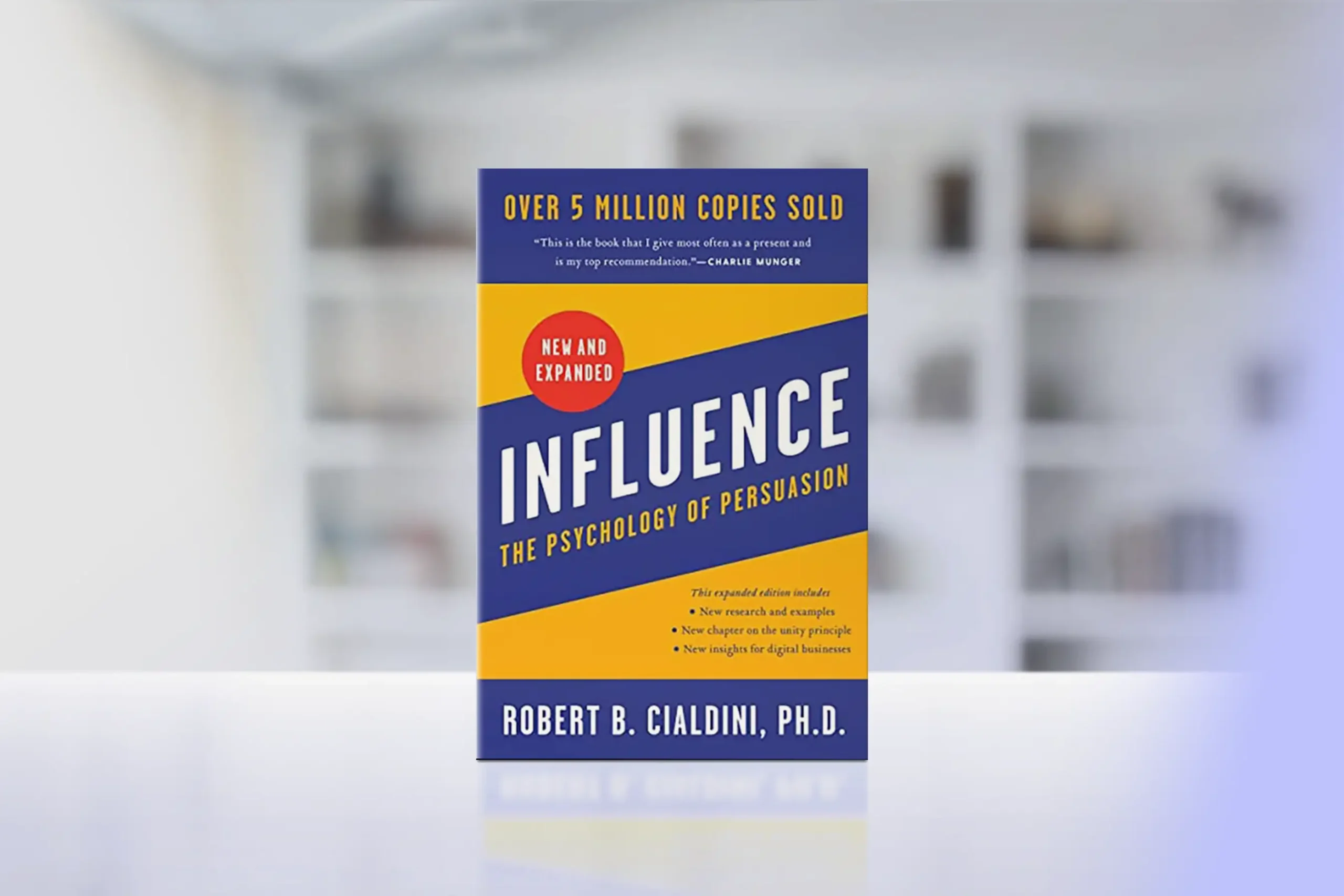Journaling is more than just putting words on paper—it’s a powerful tool for self-discovery and mindfulness. By exploring journaling for personal growth, you can clarify thoughts, process emotions, and track progress toward your goals. With simple yet effective daily journaling techniques, reflection becomes a consistent practice that nurtures awareness, resilience, and lasting personal transformation.
Inside this article:
1. Why Journaling Matters
When was the last time you uncovered something about yourself that completely shifted your perspective? That sudden “aha!” moment often happens when journaling moves beyond simply recording events and begins exploring the deeper patterns of the inner life.
Many people start journaling with good intentions, only to stop after a few blank pages. What they often discover later is that the value isn’t in writing for its own sake—it’s in creating a meaningful dialogue with the most insightful part of themselves.
Research highlights the impact of journaling:
- 40% increase in self-awareness with consistent practice
- 37% reduction in stress levels through regular writing
- 32% higher goal achievement among those who journal daily for 20 minutes
Journaling, then, becomes far more than a habit. It is a practical, evidence-based tool for self-reflection, clarity, and lasting personal growth.
In this article, you’ll discover:
- Science-backed journal writing techniques for personal growth
- Structured journaling prompts for self reflection
- Daily journaling techniques that fit seamlessly into your routine
- Methods to track patterns and progress
- Tools for emotional processing and clarity
- A systematic 90-day practice plan for sustained personal growth
- How to translate insights into real-world changes
2. The Science of Self-Reflection
“The life which is unexamined is not worth living,” wrote Socrates—and modern psychology supports this timeless insight. Yet, without a systematic approach, self-examination can feel like navigating with a broken compass. Journal writing provides that structure, serving as a bridge between lived experiences and deeper understanding. Contrary to popular belief, the most transformative insights often come not from dramatic moments but from reflecting on ordinary days when hidden patterns quietly reveal themselves.
Neuroscience research shows that writing activates both analytical and creative brain regions, fostering sharper insights and better problem-solving. Handwriting, in particular, engages neural pathways in ways typing does not, enhancing emotional processing and decision-making. Regular journaling actually reshapes the brain, creating space for clarity and growth through consistent reflection.
Deepen your practice with “Self-Discovery: Personality Tests and Tools to Learn More About Yourself” for additional self-reflection techniques.
Key Takeaways: Journal writing creates a bridge between experience and understanding, transforming ordinary moments into profound insights. The combination of structured daily journaling with consistent practice unlocks deeper self-awareness and emotional intelligence. Journaling unlocks thought patterns and wisdom.

3. Understanding Effective Journaling
Let’s be honest—we’ve all started journals that turned into grocery lists of events: “Woke up. Had coffee. Went to work. Came home. Watched Netflix.” And that’s perfectly okay as a starting point. But transformative journaling? That’s where things get really interesting.
Transformative journaling goes beyond recording daily events. It involves structured reflection techniques that promote insight, growth, and positive change. Here’s what most people don’t realize: the journal entries that change your life are often the ones that feel most uncomfortable to write.
Core Journaling Methods
Insight Journaling: Focus on understanding patterns, motivations, and lessons learned.
Use the AHA method:
- Awareness: What did you notice? (Example: “I felt anxious every time my phone buzzed today”)
- Hypothesis: What might this mean? (“Maybe I’m overwhelmed by constant connectivity”)
- Action: What will you do differently? (“Tomorrow I’ll put my phone in airplane mode for two hours”)
Growth Documentation: Track progress and changes over time. Include:
- Weekly learning moments (“This week I learned that I procrastinate when I’m afraid of imperfection”)
- Monthly growth assessments (“Last month’s focus on boundaries helped me say ‘no’ three times without guilt”)
- Quarterly reflections (“Looking back, I see I always doubt myself before major transitions”)
Emotional Processing: Use the FEEL technique to explore emotions:
- Find the emotion: “I’m feeling frustrated”
- Explore its source: “This started when my idea was dismissed in the meeting”
- Examine its impact: “It’s making me question my value on the team”
- Learn from the experience: “I need to separate my ideas from my worth as a person”
Example in practice:
“I notice I feel resentful when friends cancel plans (Awareness). Maybe this triggers my fear of being unimportant to people (Hypothesis). Next time, I’ll ask myself: what would I want a friend to do if I needed to cancel? (Action).”
But here’s where conventional journaling wisdom gets turned on its head: the entries that feel “boring” or repetitive are often the most valuable. When people write about feeling “stuck” for weeks, they initially think they’re wasting time. Those “stuck” entries often reveal feeling that precede major breakthroughs.
Mindfulness for Beginners: Simple Techniques for Everyday Life and our article on Emotional Intelligence: How to Improve Self-Awareness and Relationships for complementary practices to enhance your journaling.
Key Takeaways: Effective journaling requires structure and intention, moving beyond simple diary entries to focused self-reflection. The AHA method, growth documentation, and emotional processing create a comprehensive framework for transformation. Regular practice using proven techniques creates a powerful tool for personal growth and emotional intelligence development.
4. Daily Journal Techniques
Powerful journaling does not always happens not in hour-long sessions, but in small, consistent moments throughout your day. Research shows that multiple short journaling sessions using daily journal techniques are more effective for insight generation than one long session.
The secret isn’t finding more time—it’s making your existing moments more intentional. Feel the difference between rushing through your morning routine and starting with two minutes of clarity-setting on paper.
Micro-Journaling Throughout Your Day
2-Minute Morning Check-in:
- How am I feeling right now? (One word, expanded into one sentence)
- What do I need to remember about myself today?
- What small act of self-care can I commit to?
Example: “Anxious—my chest feels tight thinking about the presentation. I need to remember I’m prepared and my voice matters. I’ll take three deep breaths before each meeting.”
Midday Pause Technique:
Set a phone reminder for 2 PM. Write one sentence answering: “Right now, I’m noticing…”
Examples:
- “Right now, I’m noticing I’ve been holding my breath during emails.”
- “Right now, I’m noticing how good it feels when I help a colleague.”
- “Right now, I’m noticing I’m comparing myself to others again.”
Evening Wind-Down Questions:
- What made me feel most like myself today?
- What challenge helped me grow?
- What am I grateful for that I might have overlooked?
The Power of Themed Days
Instead of random reflection, try assigning themes to different days:
Monday – Intention Setting:
“This week, I want to focus on…” (relationships, creativity, boundaries, etc.)
Wednesday – Mid-Week Reality Check:
“How am I doing with my Monday intention? What needs adjusting?”
Friday – Integration:
“What did I learn about myself this week? How will I carry this forward?”
Sunday – Visioning:
“If next week went exactly as I hoped, what would happen? What small step can I take Monday to move toward that vision?”
Isn’t it remarkable how these small daily practices can completely shift how we experience our lives? The key is consistency, not perfection. Even three words can be transformative if written with intention.
Building a Wellbeing Routine: Habits for Mental and Physical Health and our article on The Mind-Body Connection: Holistic Approaches to Personal Development for enhanced daily practice strategies.
Key Takeaways: Daily journaling techniques work best when integrated naturally into existing routines rather than added as separate tasks. Micro-journaling sessions throughout the day capture insights in real-time, while themed approaches provide structure without rigidity. The most powerful discoveries often come from tracking simple patterns over time using consistent journaling prompts for self discovery.

5. Journaling Techniques and Prompts
Research shows that people who use targeted journaling prompts for self reflection increase their practice effectiveness by 65% compared to free-writing alone. The prompts that make you want to close your journal are often exactly the ones you need to explore.
Morning Reflection Techniques
Intention Setting: Begin each day by writing three specific intentions. Use the PAM format:
- Purpose: What matters most today?
- Action: What specific steps will you take?
- Mindset: What attitude will serve you best?
Example:
“Purpose: I want to connect authentically with people today. Action: I’ll put my phone away during lunch and really listen to my colleague’s story. Mindset: Curiosity over judgment—I’ll approach each interaction wondering what I might learn.”
Morning Pages: Practice 15 minutes of stream-of-consciousness writing to clear mental clutter. Studies show this reduces anxiety by 43%.
Gratitude Practice: List three specific things you’re grateful for, including one challenge that’s helping you grow. Research shows this increases positivity by 25%.
Deep Reflection Prompts for Self-Discovery
Personal Growth Exploration:
- What belief about yourself is holding you back, and where did you first learn it?
- Describe a moment when you felt most authentically yourself. What conditions allowed that?
- What would you attempt if you knew you couldn’t fail? What does this reveal about you?
- What pattern keeps showing up in your life? Write a dialogue between you and this pattern.
Emotional Archaeology:
- When did you last feel truly alive? What elements can you recreate?
- What emotion do you find hardest to express, and what might it be protecting?
- Describe your anger as if it were a person. What would it say to you?
- What childhood message about emotions still influences you today?
Future Vision Crafting:
- Describe your ideal Tuesday three years from now. What does this reveal about your values?
- What legacy do you want to leave in the lives of people you encounter daily?
- If you could send one message to yourself five years ago, what would it be?
- What small change could you make today that would compound into transformation?
Advanced Prompt Techniques
The Character Study Method:
Write about yourself in third person for different situations: “Sarah at work is confident and decisive. Sarah in family gatherings becomes quiet and watchful. Sarah alone is…”
The Time Travel Interview:
Interview yourself at different ages: “What would 8-year-old you think of your current life? What would 80-year-old you advise?”
The Inner Council:
Identify different aspects of yourself (the critic, the dreamer, the protector) and let them have conversations: “The critic says I’m not ready for this promotion. The dreamer says I should apply anyway. The protector suggests…”
Evening Integration Practices
Daily Review Template: Use the WIN format:
- What went well? (Be specific)
- Insights gained? (One key discovery)
- Next day preparation? (Tomorrow’s focus)
Learning Capture: Document one lesson and how you’ll apply it tomorrow.
Celebration Practice: Write three small wins from the day, training your brain to notice evidence of growth and resilience.
Here’s where things get fascinating: the journaling prompts you resist most strongly often hold the keys to your biggest breakthroughs. When people consistently skip certain self reflection prompts, they eventually realize their avoidance reveals the answer.
Read our ur article on Personal Reflection: The Key to Self-Awareness and Growth for complementary exploration methods.
Key Takeaways: Successful personal development journaling combines structured journal writing techniques with meaningful prompts to create a comprehensive practice for personal growth. The prompts that create resistance often hold the most transformative potential. The combination of morning clarity, deep reflection, and evening integration creates a powerful framework for self-discovery and lasting change through consistent journaling for self growth.
6. Overcoming Common Journaling Roadblocks
Starting a journal is easy, but keeping it going can feel tricky. Here are simple ways to move past the most common hurdles:
- “I don’t know what to write.” Try prompts or simple starters like “Today I noticed…” or “Right now I feel…”. Guided journals or templates can help spark ideas.
- “I don’t have time.” Even five minutes counts. Slip journaling into daily routines—during morning coffee, a lunch break, or before bed. Consistency matters more than length.
- “I’m worried about privacy.” Use a password-protected app, a notebook with a lock, or keep it tucked in a safe spot. Some people even invent shorthand for sensitive thoughts.
- “I keep judging my writing.” Your journal isn’t about perfect sentences—it’s about honesty. Set a timer, write nonstop, and let go of editing.
- “I forget to do it.” Set reminders, link journaling to a daily habit, or join a 30-day challenge. With time—about two months on average—it becomes second nature.
Key Takeaways: Common journaling roadblocks are normal parts of developing any new practice and can be overcome with simple strategies. The key is recognizing that perfection isn’t the goal—consistency and authenticity matter more than perfect writing or lengthy entries. Most obstacles stem from unrealistic expectations, and addressing them proactively helps create a sustainable journaling practice that evolves with your needs.

7. Advanced Journaling Strategies
Moving beyond basic journaling requires specialized journal writing techniques that target specific areas of personal development. Advanced strategies help unlock deeper insights and create lasting transformation. Research shows that incorporating these advanced mindful journaling practices can increase self-discovery by 47% compared to traditional approaches.
Specialized Journaling Methods
Shadow Work Journaling: Explore the parts of yourself you try to hide or deny:
- What traits in others trigger strong reactions in you?
- What parts of yourself do you try to hide? Write them a letter of acceptance.
- What patterns keep repeating in your life?
Decision-Making Journal: Use the WRAP framework:
- Widen your options: List at least three alternatives
- Reality-test your assumptions: Challenge each belief
- Attain distance: Write from your best friend’s perspective
- Prepare to be wrong: Create contingency plans
Visual Journaling: Incorporate creative elements:
- Mind maps for complex problem-solving
- Emotion wheels for feeling exploration
- Future vision boards
- Progress tracking diagrams
Integration Techniques
Metaphorical Journaling: When direct exploration feels too intense:
- Describe emotions as weather patterns
- Write about your life as a hero’s journey
- Create character sketches of different aspects of yourself
Dialogue Journaling: Create conversations on paper between different parts of yourself, with your past or future self, or with your fears and limiting beliefs.
Pattern Recognition: Use systematic tracking for monthly theme identification, behavioral trend analysis, and decision outcome tracking.
The techniques that initially feel most uncomfortable often yield the greatest transformation when approached with patience and curiosity.
Key Takeaways: Advanced journal writing techniques provide powerful tools for deeper self-exploration and transformation through personal development journaling. Shadow work, decision-making frameworks, and pattern recognition create opportunities for profound insights. The techniques that initially feel most uncomfortable often yield the greatest transformation when approached with patience and curiosity using structured journaling prompts for self discovery.
8. Journaling Action Plan
Imagine having a conversation with yourself 90 days from now. What insights would that version of you share about the transformation that began with today’s first journal entry? Here’s your roadmap to that conversation.
First 30 Days: Building the Foundation
Weeks 1-2: Establishing the Practice
- Create a dedicated journaling space and time (even if it’s just a corner of your kitchen table)
- Begin with 10 minutes of morning pages—let the words flow without editing
- Implement basic gratitude practice using specific, concrete details
- Start using the WIN evening template consistently
- Integration goal: Notice how your mood shifts on days when you journal versus days when you don’t
Weeks 3-4: Developing Consistency
- Increase journaling time to 15-20 minutes as it feels natural
- Introduce one deep reflection prompt daily—choose prompts that create slight discomfort
- Start tracking patterns and insights in a separate section or different colored pen
- Begin weekly review practice every Sunday
- Integration goal: Identify one pattern from your entries and make one small behavioral change based on it
Complete 20 consecutive days of journaling, establish morning and evening routines, identify three recurring patterns or themes that show up consistently in your writing.
Days 31-60: Deepening the Practice
Weeks 5-6: Expanding Techniques
- Implement the FEEL emotional processing method when strong emotions arise
- Begin shadow work journaling once weekly—approach with curiosity, not judgment
- Start using visual journaling elements—even simple doodles or mind maps
- Create monthly reflection summaries to track your growth trajectory
- Integration goal: Use insights from emotional processing to handle one challenging relationship differently
Weeks 7-8: Integration and Exploration
- Experiment with different journaling styles to find what resonates with you
- Develop personal prompts based on patterns you’ve identified
- Start decision-making journaling for choices big and small
- Begin tracking growth metrics that matter to you
- Integration goal: Make one significant decision using your journaling insights rather than just “gut feeling”
Develop personalized prompt library, complete four shadow work sessions, create first monthly insight summary that shows clear evidence of growth.
Days 61-90: Mastery and Innovation
Weeks 9-10: Advanced Integration
- Combine multiple techniques effectively in single sessions
- Develop complex reflection frameworks that work specifically for your life
- Create themed journaling days that align with your goals
- Begin sharing insights appropriately with trusted friends or family
- Integration goal: Implement a major life change based on patterns identified through your practice
Weeks 11-12: Sustainable Practice
- Fine-tune personal journaling system for long-term sustainability
- Create maintenance strategies for busy periods or travel
- Develop methods for reviewing past entries to track long-term growth
- Plan next phase of practice development based on what you’ve learned about yourself
- Integration goal: Help someone else begin their journaling journey, deepening your own understanding
Established personalized journaling system that feels sustainable, clear evidence of growth visible in relationships and decision-making, ability to adapt practice to changing life circumstances.
Next Steps Beyond 90 Days:
After completing this foundation, consider:
- Developing specialized practices for specific life areas (relationships, career, health)
- Creating a personal growth curriculum based on your journal insights
- Using journaling to work through major life transitions
- Incorporating your journaling insights into goal-setting and life planning
Integration Accountability
Track how insights translate to action:
- Week 2: Note one behavioral change from journal insight
- Week 4: Implement one relationship improvement based on emotional processing
- Week 8: Make one significant decision using decision-making journaling
- Week 12: Document three major life improvements traceable to journaling practice
Remember: This isn’t about perfect adherence to a schedule—it’s about building a relationship with yourself that grows stronger and more insightful over time. Some days you’ll write pages, other days just a sentence. Both are valuable when done with intention.
Next Steps: Your Journey Continues
Picture yourself a year from now, flipping through a journal filled with insights and breakthroughs. Instead of scattered thoughts, you hold a record of growth—not just the highlights, but the daily process of becoming who you’re meant to be.
Journaling for personal growth is more than writing—it’s a dialogue that sparks clarity, reveals patterns, and guides wiser choices. Each entry adds to a tapestry of self-discovery, helping you know yourself more deeply and transform your life.
Take Your First Step Today
Don’t wait for the perfect journal or the perfect moment. Start where you are, with what you have:
- Choose your journaling tool (digital or physical—whatever you’ll actually use)
- Set aside 10 minutes for your first entry
- Begin with a simple prompt: “Right now, I feel…” and let yourself write whatever comes next
- Schedule your next entry for tomorrow at the same time
Remember, journaling for personal growth is a journey that evolves with you. Your practice can be as unique as you are, growing and changing as you do. The most important thing isn’t how you start, but that you start. Today.
What will your first entry reveal?
Related articles
How to Journal Like a Professional: The Definitive Guide from Amateur to Expert
Master advanced journaling techniques and transform your practice from basic writing to professional-level self-discovery.
10 Powerful Ways to Trigger a Massive Breakthrough
Discover proven strategies to accelerate your personal growth and create life-changing transformations.
Building Confidence and Self-Esteem: Simple Steps for Lifelong Empowerment
Develop unshakeable self-confidence through proven techniques and daily practices that build lasting inner strength.
Further reading
“The Power of Habit” by Charles Duhigg
Explores the science behind habit formation and how consistent practices like journaling can rewire your brain for success.
“Emotional Intelligence” by Daniel Goleman
Complements journaling practice by providing frameworks for understanding and processing emotions more effectively.
“The Artist’s Way” by Julia Cameron
A classic guide to creative recovery that includes morning pages and other transformative writing practices for personal growth.
“Mindset: The New Psychology of Success” by Carol S. Dweck
Explores how your beliefs about ability and intelligence affect your success, supporting the growth-oriented approach of reflective journaling.
“The 7 Habits of Highly Effective People” by Stephen R. Covey
Provides a character-based approach to personal effectiveness that aligns perfectly with the self-reflection goals of journaling practice.





